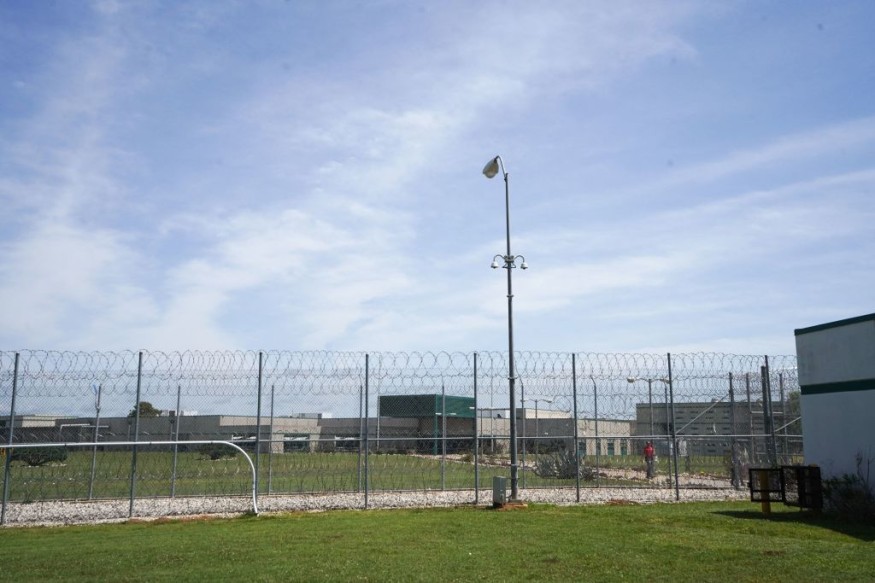Texas Department of Criminal Justice Issues Statewide Prison Lockdown Amid Illegal Drugs and Inmate Violence

The Texas Department of Criminal Justice has announced immediate measures to address the rising issues of violence, contraband, and drug-related inmate homicides within the state's prison system.
Over the past five years, the TDCJ has observed an increase in illegal narcotics entering correctional facilities, posing significant safety concerns for staff and inmates, according to Click2Houston.
According to the TDCJ's report, there have been 16 inmate-on-inmate homicides in 2023, with most of these incidents believed to be connected to illegal drugs.
In response to these challenges, TDCJ Executive Director Bryan Collier has declared a lockdown as an important step to address the root causes of the crisis, enhance security measures, and ensure the well-being of all individuals within the agency.
The Texas statewide prison lockdown aims to locate and eliminate narcotics within the correctional facilities while collaborating with the Office of Inspector General and external law enforcement agencies to dismantle drug trafficking networks.
Texas Department of Criminal Justice to Conduct Intensify Search
Regional facilities are set to bolster security measures, involving rigorous searches of inmates and staff members.
TDCJ has also transitioned to a digital mail system effective September 6, 2023, per KSAT.
As per the new system, all incoming correspondence should be directed to a centralized digital mail processing hub.
Each piece of mail will undergo sorting and scanning before being uploaded to an inmate's designated secure tablet.
Those inmates not equipped with tablets will be provided with black-and-white printouts of their correspondence.
Meanwhile, despite the ongoing lockdown, inmates' access to the telephone system remains unaffected.
The TDCJ cites a disturbing rise in incidents as the rationale behind the digital transition. They have identified cases where paper mail directed to the prisons was impregnated with synthetic THC - a key component of marijuana or methamphetamines.
The new system aims to deter such attempts to introduce illicit substances into correctional facilities.
In addition to the above measures, the TDCJ has launched a dedicated tip line. This helpline is available to inmates, staff, and their families, allowing them to report any anomalies, suspicious activities, or information about contraband.
The TDCJ has remained tight-lipped about the exact duration of the systemwide lockdown. However, they have assured that standard operations will recommence once the meticulous searches are finalized.
Man on Death Row Calls Texas Senator Using Smuggled Phone in 2008
Texas prison system faced a significant security breach when a death row inmate made an unauthorized call to a state senator in 2008, The Texas Tribune noted.
The inmate claimed to have procured the cell phone via a prison guard. As a swift response to this glaring security lapse, former Gov. Rick Perry ordered a lockdown of 112 prisons.
The subsequent countermeasures taken by the agency included the acquisition of call jammers. Furthermore, to reduce contraband smuggling, staff underwent routine drug tests.
The Texas Department of Criminal Justice introduced the "Inspect 2 Protect" initiative in 2021.
This multifaceted program focused on enhancing security during visiting days by deploying more drug-sniffing dogs.
The regulations were further tightened, allowing incoming mail to consist only of plain white paper and a limited number of photographs.
However, that very year, an investigative collaboration between The Texas Tribune and The Marshall Project unveiled concerning findings.
Their research, which considered testimonies from over a dozen individuals who resided in or were employed by Texas prisons, revealed that the primary conduits for drug smuggling were underpaid TDCJ employees working in inadequately staffed facilities.
Despite these revelations, prison officials stood by the effectiveness of the drug-sniffing dog program.
They argued that the presence of these canines resulted in the interception of a higher volume of suspicious mail.
Furthermore, there was a marked decrease in the number of inmates testing positive for illegal substances, reinforcing their belief in the program's efficacy.
READ MORE: North Carolina Student Found Dead
This article is owned by Latin Post.
Written by: Bert Hoover
WATCH: Violence, drug-related inmate murders trigger lockdown of entire Texas prison system - From 12NewsNow
Subscribe to Latin Post!
Sign up for our free newsletter for the Latest coverage!
© 2025 Latin Post. All rights reserved. Do not reproduce without permission.















